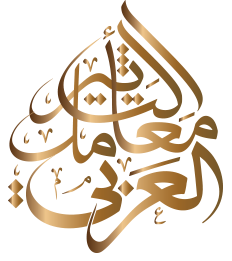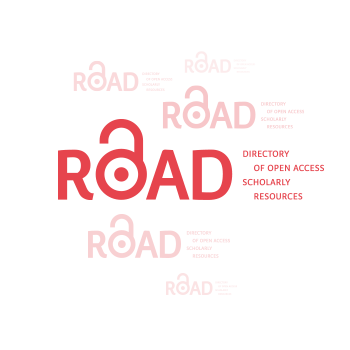The Role of Teaching Texts in Developing the Literary Appreciation Skill of Arabic Learners in Secondary Education
DOI:
https://doi.org/10.59994/pau.2024.1.32Keywords:
Didactics, Texts, Artistic Taste, Arabic Language, Secondary SchoolAbstract
This study aimed to determine the role of teaching texts in developing the skill of artistic appreciation among Arabic language learners in the secondary school. The study sample consisted of sixty teachers, and we distributed to them a questionnaire consisting of three items: the first item was concerned with the type of texts and how to choose them, the second item focused on teaching texts, and the third item was related to evaluation and support. After transcribing the results of the questionnaire using the statistical program (SPSS), the results were processed and discussed using the descriptive analytical method. Among the findings of the study are: that Arabic language books in secondary school do not suit the learners’ mental perceptions, are not open to their environment, and do not keep pace with the developments of the times, and that many of the pictures next to the texts do not express their content. Poetic texts constitute the most difficult types for learners to understand compared to narrative and functional texts. The scientific value of the study lies in providing a vision to address the problem of learners’ reception of literary texts in relation to the methodology of presenting and teaching them. And increasing awareness of the most important elements that make today’s learner not want to read literary texts, feel their artistic and linguistic aesthetics, and invest in the values that they rely on.
Downloads
References
المراجع العربية:
ابن خلدون، عبد الرحمن. (2004). مقدمة ابن خلدون. دار يعرب.
ابن منظور، محمد. (د.ت). لسان العرب. بيروت، دار صادر.
بدوي، عبده. (1992). قضايا حول الشعر. دمشق، الهيئة المصرية العامة للكتاب.
بليث، هرنيش. (1989). البلاغة والأسلوبية. (ترجمة: محمد العمري)، المغرب، منشورات دراسات سال.
الجرجاني، علي. (د.ت). معجم التعريفات. مصر، دار الفضيلة.
حمود، محمد. (1998). مكونات القراءة المنهجية للنصوص. المغرب، دار الثقافة.
الحميداني، حميد. (1993). بنية النص السردي. بيروت، المركز الثقافي العربي.
خطابي، محمد. (1991). لسانيات النص مدخل إلى انسجام الخطاب. بيروت، المركز الثقافي العربي.
ريكور، بول. (2001). من النص إلى الفعل أبحاث التأويل. (ترجمة: محمد برادة، وحسان بورقيبة)، القاهرة، عين للدراسات والبحوث الإنسانية والاجتماعية.
شعبان، ماهر. (2010). الكتابة الوظيفية والإبداعية. عمان، دار المسيرة.
صولة، عبد الله. (2007). الحجاج في القرآن من خلال أهم خصائصه الأسلوبية. بيروت، دار الفارابي.
طه، عبد الرحمن. (2000). في أصول الحوار وتجديد علم الكلام. (ط 2) الدار البيضاء، المركز الثقافي العربي.
عبد الشافي، حسن؛ مصطفى، فهيم. (1998). مهارات القراءة: قياس وتقويم. القاهرة، مكتبة الدار العربية للكتاب.
العمامي، محمد. (2010). الوصف في النص السردي بين النظرية والإجراء. تونس، دار محمد علي للنشر.
فشار، فاطمة الزهراء. (2022). القراءة المنهجية وتعليميّة النص الأدبي. مجلة العلوم القانونية والاجتماعية، 7(2)، 720-740.
الكردي، عبد الكريم. (1996). الراوي والنص القصصي. القاهرة، دار النشر للجامعات.
كلموني، عبد الرحمن. (2006). مدخل إلى القراءة المنهجية للنصوص: من أجل كفايات قرائية بالتعليم الثانوي. المغرب، منشورات صدى التضامن.
مرتاض، عبد المالك. (1998). في نظرية الرواية بحث في تقنيات السرد. عالم المعرفة، 242-260.
مريني، محمد. (2002). النص الأدبي، قضايا ديدكتيكية. وجدة، دار الجسور.
الملائكة، نازك. (1992). قضايا الشعر المعاصر. دمشق، منشورات مكتبة النهضة.
وزارة المناهج. (2007). التوجيهات التربوية والبرامج الخاصة بمادة اللغة العربية – الثانوي التأهيلي. المغرب.
يقطين، سعيد. (2001). انفتاح النص الروائي النص والسياق. (ط 2)، الدار البيضاء، المركز الثقافي العربي.
يقطين، سعيد. (2012). السرد العربي مفاهيم وتجليات. الرباط، دار الأمان.
المراجع العربية بنظام الرومنة:
Abn Mnzwr, Mhmd. (d.t). lsan al'erb. byrwt, dar sadr.
Bdwy, 'Ebdh. (1992). qdaya hwl alsh'er. dmshq, alhy'eh almsryh al'eamh llktab.
Blyth, Hrnysh. (1989). alblaghh walaslwbyh. (trjmh: mhmd al'emry), almghrb, mnshwrat drasat sal.
Aljrjany, 'Ely. (d.t). m'ejm alt'eryfat. msr, dar alfdylh.
Hmwd, Mhmd. (1998). mkwnat alqra'h almnhjyh llnsws. dar althqafh.
Alhmydany, Hmyd. (1993). bnyh alns alsrdy. byrwt, almrkz althqafy al'erby.
Khtaby, Mhmd. (1991). lsanyat alns mdkhl ela ansjam alkhtab. byrwt, almrkz althqafy al'erby.
Rykwr, Bwl. (2001). mn alns ela alf'el abhath altawyl. (trjmh: mhmd bradh, whsan bwrqybh), alqahrh, 'eyn lldrasat walbhwth alensanyh walajtma'eyh.
Sh'eban, Mahr. (2010). alktabh alwzyfyh walebda'eyh. 'eman, dar almsyrh.
Swlh, 'Ebd Allh. (2007). alhjaj fy alqran mn khlal ahm khsa'esh alaslwbyh. byrwt, dar alfaraby.
Th, 'Ebd Alrhmn. (2000). fy aswl alhwar wtjdyd 'elm alklam. (t 2) aldar albyda', almrkz althqafy al'erby.
'Ebd Alshafy, Hsn؛ Mstfa, Fhym. (1998). mharat alqra'h: qyas wtqwym. alqahrh, mktbh aldar al'erbyh llktab.
Al'emamy, Mhmd. (2010). alwsf fy alns alsrdy byn alnzryh walejra'. twns, dar mhmd 'ely llnshr.
fshar, fatmh alzhra'. (2022). alqra'h almnhjyh wt'elymyh alns aladby. mjlh al'elwm alqanwnyh walajtma'eyh, 7(2), 720-740.
Alkrdy, 'Ebd Alkrym. (1996). alrawy walns alqssy. alqahrh, dar alnshr lljam'eat.
Klmwny, 'Ebd Alrhmn. (2006). mdkhl ela alqra'h almnhjyh llnsws: mn ajl kfayat qra'eyh balt'elym althanwy. almghrb, mnshwrat sda altdamn.
Mrtad, 'Ebd Almalk. (1998). fy nzryh alrwayh bhth fy tqnyat alsrd. 'ealm alm'erfh, 242-260.
Mryny, Mhmd. (2002). alns aladby, qdaya dydktykyh. wjdh, dar aljswr.
Almla'ekh, Nazk. (1992). qdaya alsh'er alm'easr. dmshq, mnshwrat mktbh alnhdh.
Wzarh Almnahj. (2007). altwjyhat altrbwyh walbramj alkhash bmadh allghh al'erbyh – althanwy altahyly. almghrb.
Yqtyn, S'eyd. (2001). anftah alns alrwa'ey alns walsyaq. (t 2), aldar albyda', almrkz althqafy al'erby.
Yqtyn, S'eyd. (2012). alsrd al'erby mfahym wtjlyat. alrbat, dar alaman.
المراجع الأجنبية:
Dumortier, J.-L. (1980). Pour lire le récit. Ed duclot.
Barthes, R.. (1966) Introduction à l'analyse structurale des récits. Communications,1-27.
Downloads
Published
How to Cite
Issue
Section
License
Copyright (c) 2024 Journal of Palestine Ahliya University for Research and Studies

This work is licensed under a Creative Commons Attribution 4.0 International License.
مجلة جامعة فلسطين الاهلية للبحوث والدراسات تعتمد رخصة نَسب المُصنَّف 4.0 دولي (CC BY 4.0)











